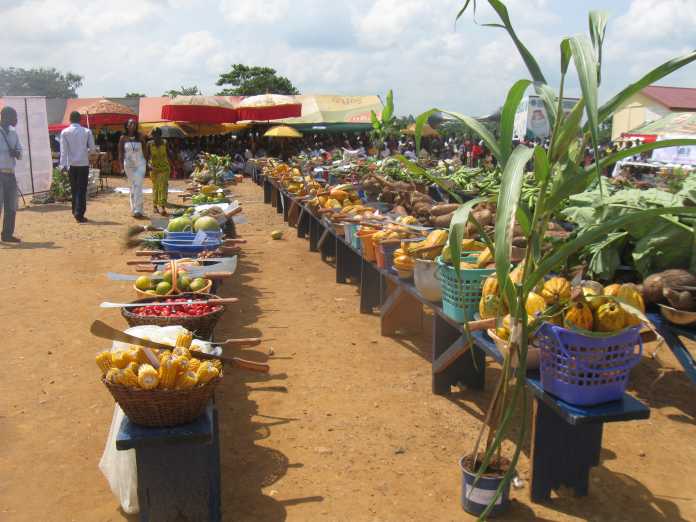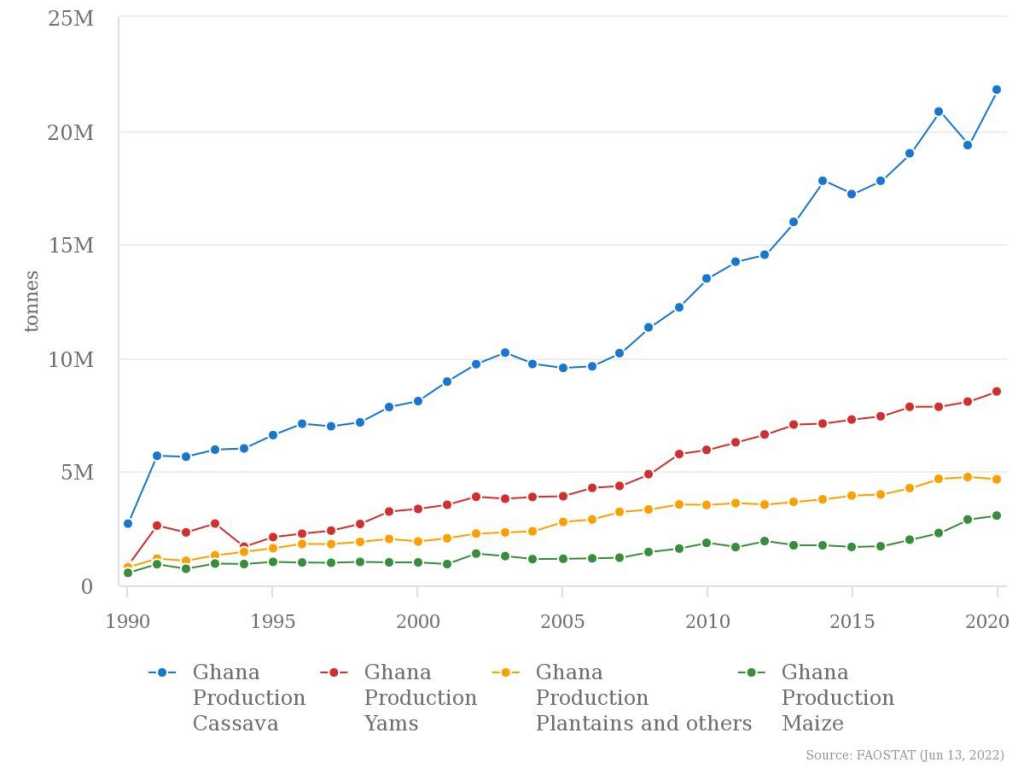CNBC posted an article today claiming Ghana’s farmers are suffering devastating losses due to climate change. Data prove this is false. During the period of modest warming production of Ghana’s major food crops have grown significantly, setting new records for production regularly.
In the CNBC story, “Ghana’s Crop Production Continues to be Devastated by Climate Change,” the author, Kwame Acheampong, interviews some farmers in Ghana who have suffered crop losses due to fickle weather in recent years, blaming it on climate change.
“Ghana, like many developing countries in the tropical zone of West Africa, is already experiencing climate change impacts that include unpredictable rainfall patterns, rising temperatures, and the greater frequency of extreme weather events including floods,” writes Acheampong. “Climate change also affects agricultural production in Ghana, especially in northern Ghana.”
Farmers are used to changes in the weather impacting their crop production, seasonally, annually, and over the decades. Nowhere is this truer, perhaps, than in Ghana. Typically hot year round, the country has marked annual wet and dry seasons, but extended droughts or extreme periods of rainfall and flooding have not been uncommon, historically.
Acheampong was vague concerning the crops being harmed in Ghana. Perhaps, that’s because there is no evidence climate change has resulted in declining production of any of the country’s major food crops. Cassava, maize, plantains, and yams are among the top crops produced by Ghana’s network of small farmers. Data from the U.N. Food and Agriculture Organization (FAO) shows that production for each of these staple crops has grown considerably between 1990 and 2020, the period which climate alarmists claim has been the warmest on record. Between 1990 and 2020, the most recent year for which the FAO has data, in Ghana:
- Cassava production grew by about 703 percent and set records 21 times, most recently in 2020;
- Maize production increased by approximately 456 percent, setting records 12 times, most recently in 2020;
- Plantain production rose by more than 484 percent, setting records 24 times, most recently in 2019;
- Yam production improved nearly 873 percent, during that time period setting records 24 times, most recently in 2020. (See the figure below).
One bad year’s crop production for the select few farmers interviewed is not evidence of the impacts of long-term climate change on Ghana’s agricultural sector. There is no evidence Ghana’s weather has become more extreme during the past 30 years of modest global warming.
Crop production has risen in Ghana, right along with carbon dioxide, which should not surprising since CO2 is plant food—within any foreseeable range, the more the better. Acheampong took what could have been a compelling human interest story, and turned it into one more false climate alarm tale. That’s a pity for him, the farmers he interviewed, and CNBC’s readers.


















